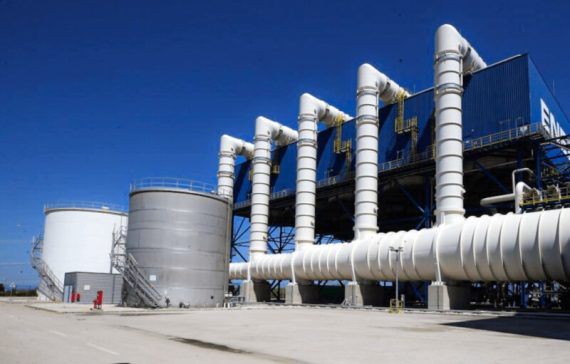O
n October 1, 2023, the European Commission will regulate all trade with non-EU countries. This new regulation aims to decarbonize trade by discouraging exporters who sell carbon-intensive products. Industrial goods such as cement, iron, steel, and fertilizers will be subject to certification requirements as to whether they are carbon-free.
Such a policy jeopardizes Turkish exports to Europe which account for more than 50% of Turkey’s trade balance. Industrial goods such as iron, steel, and hydrogen also form a significant share of Turkish exports. Turkey either must change its exports or find new partners for trade. However, the country has a promising strategy to tackle both environmental and commercial concerns.
Turkey is launching a brand-new project in Bandırma: Turkish engineers, under the auspices of the South Marmara Development Agency (GMKA), have planned to build a sustainable energy production facility. By producing green hydrogen, this project has the potential to transform Turkish industry as the country can decarbonize its industrial output through green hydrogen from Bandırma.
Bandırma’s hydrogen initiative: HYSouthMarmara
Why did Turkish scientists choose Bandırma, a small town south of the Marmara Sea, as a new energy hub? The answer lies in Bandırma’s fertile alternative energy potential. Bandırma alone contains 21% of Turkey’s wind farms. This extensive renewable capacity leads to greater opportunities to produce green hydrogen, which is the most valuable form of hydrogen and the cleanest energy option.
Green hydrogen, which electrolysis plants in Bandırma will produce, can easily be produced using renewable energy. In addition, Bandırma has the capacity to produce more green hydrogen than any country in Central Eurasia. Bandırma’s renewable energy alone meets 13% of Turkey’s electricity needs.
Turkish engineers are determined to produce more electricity. Engineers will have to utilize Bandırma’s wind and solar power to produce green hydrogen, which in turn they can use to produce cleaner electricity through electrolysis. Since they already have access to Bandırma’s renewables, the only remaining challenge is to build high-capacity electrolysis facilities.
With HYSouthMarmara, Turkey can be a regional green energy hub. The GMKA estimates that Turkey will be producing green hydrogen at the volume of 500 tons per year. With this capacity, Turkish engineers can produce steel, iron, and fertilizers without intensive carbon emissions.
Combined power of boron and hydrogen
Turkey’s HYSouthMarmara project promises more than saving Turkish exports to Europe. Green hydrogen could be a strategic asset for the country as it has the potential to diversify boron-based production. Green hydrogen can be combined with boron, paving the way for new sustainable alternatives. This is a crucial development for Turkey, which has 73% of the world’s boron reserves.
Turkey’s plans for this project include the development of an environmentally friendly type of fuel. With existing boron reserves, Turkey can accelerate the production of sodium borohydride, which is a compound that is useful for storing hydrogen. The storage capacity of sodium borohydride is similar to that of diesel, and the automotive industry can easily use it for electric cars.
However, it is worth noting that aviation emits 100 times more carbon than cars, and thus a new challenge is to reduce the harmful effects of jet fuels. Turkey’s hydrogen hub offers new alternatives as green hydrogen and sodium borohydride can be combined and used to develop alternative jet fuels. Sodium borohydride is quite energy dense, so it can be used to power aircraft.
Recommended
Turkey’s future in hydrogen
The feasibility of Bandırma Hydrogen Valley is being assessed by multinational institutions. Morocco’s Mohammed VI Polytechnic University, a leading institution in the field of sustainable energy, has ratified the project. Presenting itself as a promising hub for sustainable energy, Bandırma Hydro Valley has attracted n €8 million investment from the EU. The Scientific and Technological Research Council of Turkey (TÜBİTAK) concluded the project’s credibility by funding it with more than €36 million.
HYSouthMarmara is Turkey’s highest-financed environmental project to date. Funds from multinational institutions indicate that Turkey has achieved a serious level of credibility and is becoming a trusted partner in carbon-free energy production. Turkey’s energy hub will also be an opportunity for countries seeking energy independence.
On July 1, 2023, Turkish engineers started the construction of Bandırma Hydrogen Valley. When HYSouthMarmara becomes operational, it will serve the interests of Turkey and other countries. As a decarbonization facility, it will also help Turkey diversify its industrial products. From drone batteries to jet fuel, green hydrogen can help Turkey become an energy exporter in the future, and, importantly, offers Turkey a future in which it can tackle both environmental and economic issues.





